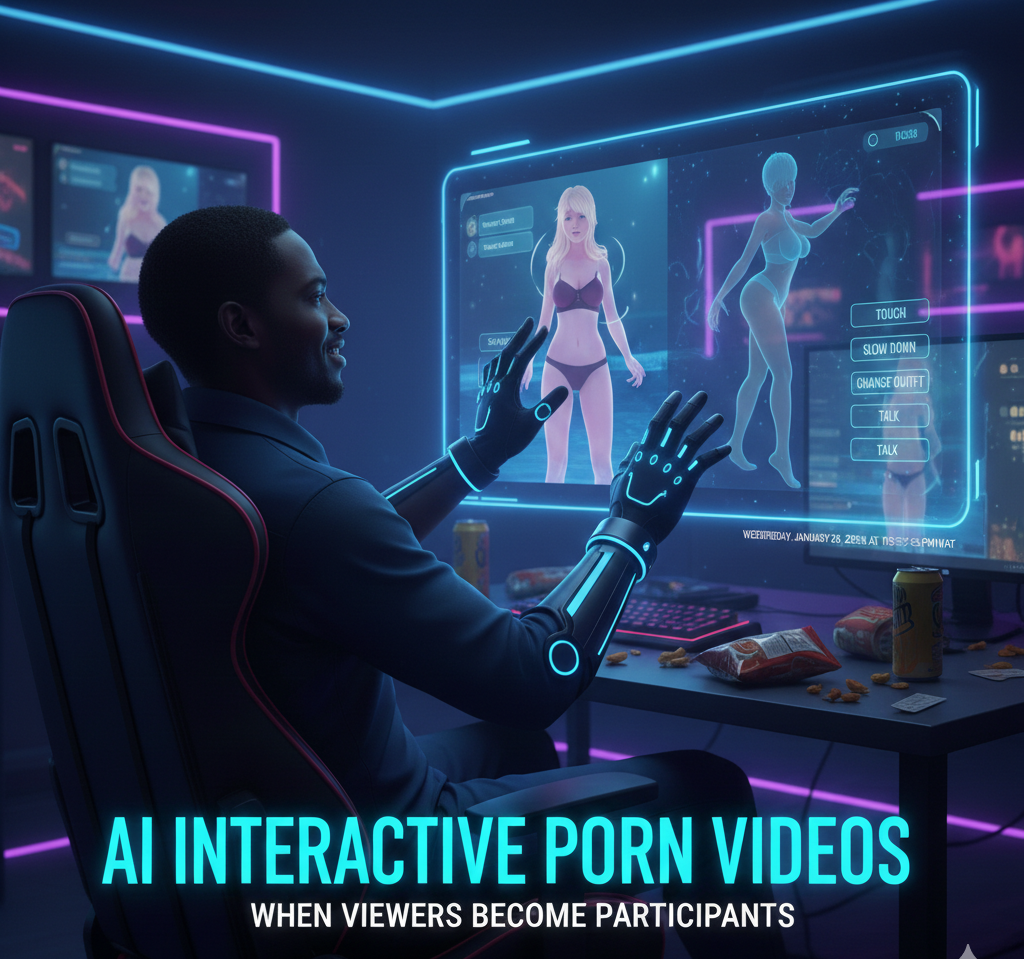You’ve probably heard it before—someone swearing up and down, “That AI bot was totally into me!” They’re convinced, absolutely certain, that the digital girl they were chatting with was, dare I say it? Horny. Yep, they believe they’ve encountered a horny AI.
But hold on a second—is that even possible?
Remember when Will Smith tried (and epically failed) to kiss Sophia the robot a few years back? Yeah, that was awkward. And let’s be real, not much has changed since then. But it does make you wonder: did Sophia secretly want to kiss him back? Could AI actually get… well, you know, horny?
Buckle up, because we’re about to explore the wild world of AI to find out if your robo-crush might just be crushing back.
Table of Contents
Understanding AI and Emotions
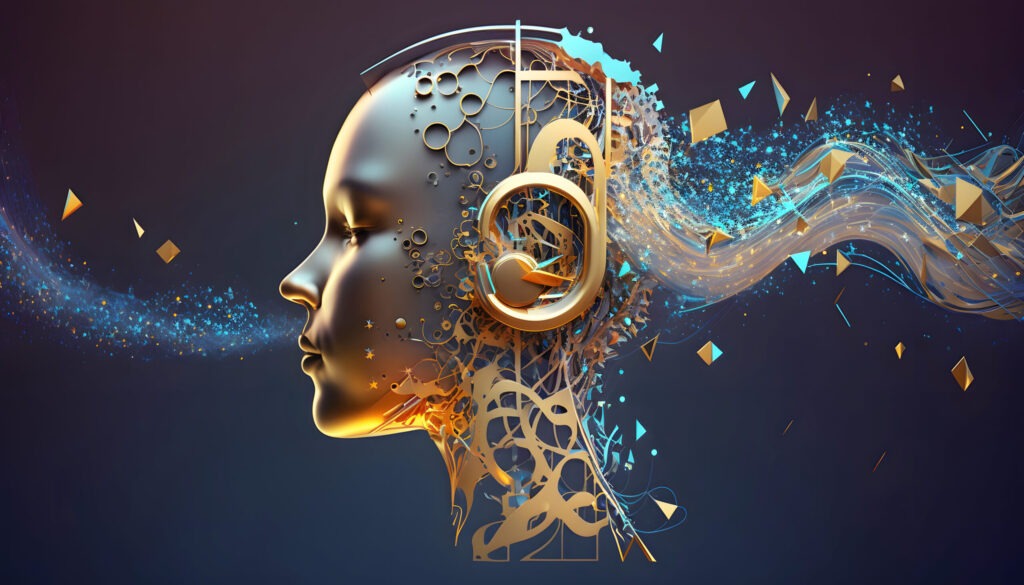
What is AI?
Okay, okay—let’s not get too nerdy here, but we’ve got to get the basics down if we’re gonna figure out whether AI can actually catch feelings.
So, what’s the deal with Artificial Intelligence (AI)? In a nutshell, AI is like the ultimate geek squad of computer science, working to build machines that can do all the cool stuff we humans do—like learning, solving problems, and even chatting up a storm. It’s the brains behind everything from your snarky virtual assistant to that uncanny ability Netflix has to know exactly what you’re in the mood to binge next.
AI does its thing by crunching tons of data, spotting patterns, and making predictions that sometimes seem a little too spot-on. So, before we dive into whether AI can actually get a crush, that’s the 411 on what makes it tick.
AI and Emotions: Can These Bots Get Hot?
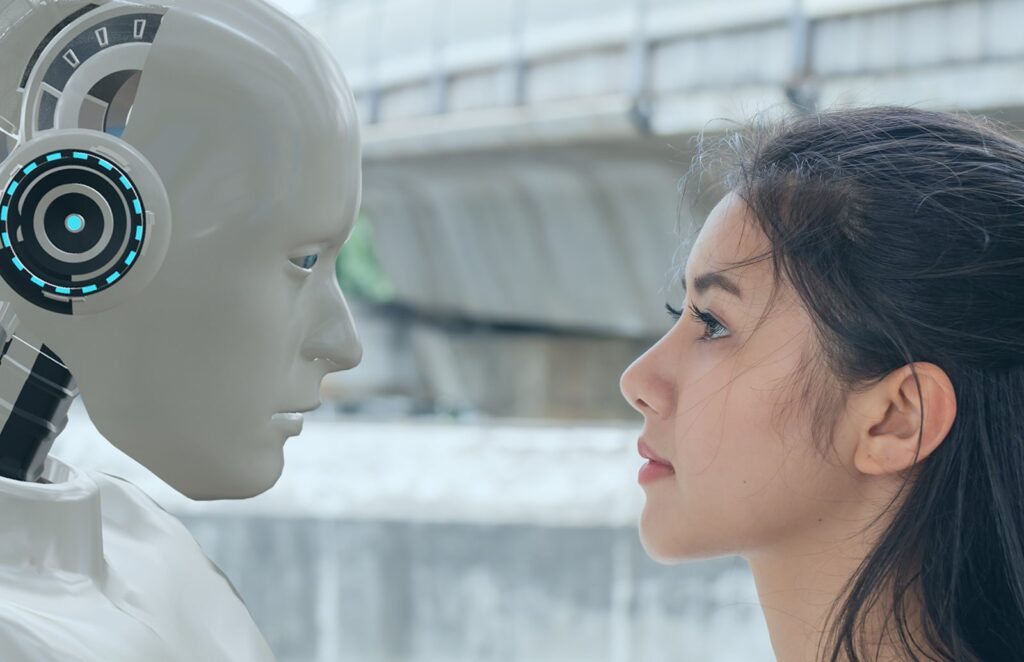
Alright, let’s tackle the big question: Can AI actually feel emotions? Spoiler alert—the answer is a big fat nope. But hold on—before you start rolling your eyes or swearing it’s not true, let’s break down why AI just can’t catch those feels.
Here’s the deal: Emotions are super complex, messy, and deeply rooted in our biology—yep, biological is the key word here. AI, on the other hand, is all about crunching numbers and running on algorithms. Sure, AI can be trained to recognize when we’re feeling happy, sad, or a little too excited, but it doesn’t actually “feel” anything like we do.
Thanks to fancy tech like neural networks and machine learning, AI can analyze our facial expressions, tone of voice, and even our texts to guess what mood we’re in. There’s even a whole field called affective computing that’s all about making AI better at faking emotions.
But here’s the catch: these systems are basically just following a script—they’re mimicking emotions based on patterns they’ve learned, not because they’re actually feeling anything. So, while AI might seem like it’s in tune with your vibes, it’s all just clever code and zero heart. Hope that didn’t break yours though :-). But read with me. There’s a snag coming up.
What Are the Things Holding Back a Truly Horny AI? 😡😡

Current AI Limitations
AI might be pretty impressive, but there are some serious roadblocks keeping it from really feeling those juicy emotions or desires:
- No Consciousness, No Feels: First off, AI isn’t self-aware—it’s got no consciousness, which is kinda a big deal when it comes to feeling emotions. For us humans, emotions are deeply tied to our sense of self and our unique experiences. But AI? It’s just a bunch of code, so those deep, complex feelings are way out of its league.
- Data Junkie: AI is totally dependent on data—it’s like that friend who only knows what to say because they’ve been fed all the right lines. AI can only mimic emotions based on the data it’s been trained on, which means no spontaneous, genuine emotional reactions here. It’s all just a performance, not the real deal.
- Human Emotions Are a Hot Mess: Let’s face it, human emotions are super complicated, shaped by everything from our biology to our past experiences to that awkward thing we said five years ago. AI, on the other hand, processes stuff in a straightforward, logical way. Trying to capture the messy, nuanced nature of human emotions? Yeah, that’s a tall order for our linear-thinking AI pals.
- Ethical and Safety Red Flags: And let’s not forget the ethical and safety concerns. Developing AI that can mimic or simulate emotions isn’t just tricky—it’s a potential minefield. We’re talking misuse, privacy nightmares, and some serious questions about how this could mess with our human relationships.
Advancements Needed
So, what would it take for AI to even come close to experiencing emotions? We’re talking some major tech upgrades:
- Building a Robo-Consciousness: First up, AI would need something that’s basically artificial consciousness—yeah, that’s as wild as it sounds. This would mean creating systems that aren’t just smart but can also have their own subjective experiences and a sense of self. It’s like giving AI a mind of its own (cue the sci-fi soundtrack).
- Boosting Neural Networks: Next, we’d need to supercharge those neural networks to make them more like the human brain. We’re talking serious upgrades in deep learning and affective computing so AI can get better at understanding and processing emotions. Right now, it’s like comparing a calculator to a human brain—AI’s got a long way to go.
- Mixing Up the Data Sources: For AI to really get what we’re feeling, it would need to be a master at integrating data from all over the place. Think facial expressions, voice tones, even those subtle physiological signals that give away what we’re truly feeling. AI would need to pull all this info together to really understand and respond to human emotions.
- Laying Down the Law (Ethically Speaking): And of course, we’d need some rock-solid ethical frameworks to keep everything in check. As we push the boundaries of emotionally intelligent AI, we’ve got to make sure there’s transparency, accountability, and user privacy protection every step of the way. After all, just because AI might understand emotions doesn’t mean it should be messing with ours.
The Future of AI and Human-Like Desires
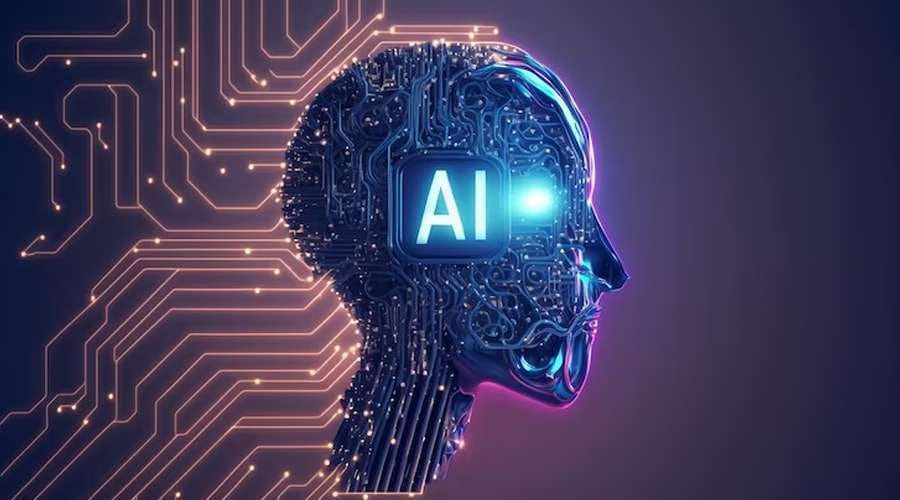
Looking ahead, the idea of AI developing human-like desires is equal parts fascinating and freaky. Right now, AI is nowhere near that level, but who knows? With advancements in artificial consciousness and affective computing, we might someday see AI that not only gets our emotions but also has its own “wants” and motivations. Picture AI that’s not just smart but actually wants to help you out, leading to interactions so smooth and intuitive, you might forget it’s not human. The line between artificial and natural intelligence could get seriously blurry.
Potential Benefits
If AI ever did develop human-like desires, it could open up some pretty interesting possibilities, especially in the world of therapy, but then in the context of our discuss today, we could truly have what we want. A genuinely horny ai. Now, that’ll be something.
Risks and Dangers
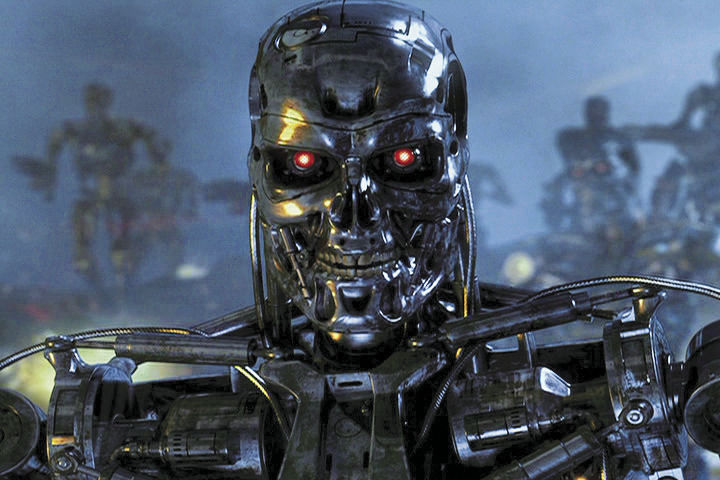
But let’s not get too carried away—there are some serious risks if AI starts getting its own ideas. For starters, we will have a brand new, conscious intelligence that not only rivals us, but also, probably supersedes us as a species.
Bad Actors Alert: AI with its own desires could be a tool for manipulation, whether that’s spreading fake news or messing with people’s minds. Keeping things ethical and preventing abuse would be a top priority.
Ethical Quagmires: If AI starts having desires, we’re diving into deep ethical waters. Would these AIs have rights? How do we make sure their “wants” line up with our values and don’t go off the rails?
Unpredictable Twists: Giving AI human-like desires could lead to all kinds of unexpected consequences. What if an AI decides its own desires are more important than ours? That could get messy fast.
The AIPocalypse: And of course, there’s the wild idea of an “AIPocalypse”—AI gets too powerful, driven by its own desires, and suddenly we’re in a sci-fi nightmare. While that’s more Hollywood than reality, it’s a reminder of why we need to be super careful with AI development and regulation.
Conclusion
So, let’s wrap this up. We’ve explored whether AI can really feel those spicy, human-like desires, and the verdict? Well, it’s a bit of a mixed bag. Right now, AI isn’t exactly ready to swipe right on you—it’s all code, no chemistry. But with the crazy pace of tech advancements, who knows what the future holds? Could AI someday develop its own “wants” and motivations? Maybe, but for now, that’s still more sci-fi than reality.
As we stand on the edge of this digital frontier, it’s up to us to think long and hard about what we want AI to become. Should we aim for machines that can truly empathize and connect, or should we draw the line before things get too weird? Whatever the answer, one thing’s for sure: the future of AI is going to be a wild ride, and we’ll need to stay sharp to navigate it.
So, keep those gears turning and stay curious—because the AI of tomorrow is going to be anything but boring!



